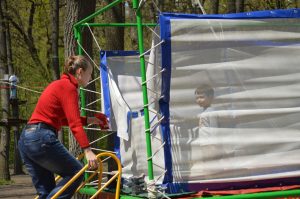More support for kids experiencing learning or developmental delays was one parent’s wish for early childhood programs, especially before school entry. Waiting until kids arrive in grade one misses such a critical time of development.

We know that children are all unique and learn and develop at their own rate, in their own ways, and in their own time. While kids follow a similar pattern, kids experiencing learning and developmental delays need extra support. This could mean more time, targeted coaching, special equipment, and other strategies. It also means an extra burden on parents.
In her article, What You Need to Know About Developmental Delays, Amanda Morin gives a helpful overview of 5 skill areas:
1. Cognitive Skills: These are the mental or thinking skills, like “learning to count, naming colors and learning new words,” and strategies, such as organizing, sorting, and solving problems.
2. Social and Emotional Skills: Interactions with others and dealing with feelings and emotions are not just children’s personality; these are skills that kids learn and develop.
3. Speech and Language Skills: No matter which language you speak at home, language abilities are tremendously important. Some children also communicate with sign language.
4. Fine and Gross Motor Skills: Kids like to move and be active. Skills like walking, running, jumping, rolling, use the large or gross muscles. Doing up buttons, building with blocks, fitting puzzles, and unscrewing the door stoppers use fine or small muscles. These are still developing even when kids start school.
5. Daily Living Skills: Self-care, being independent, taking care of bathroom needs, and others are daily living skills.

All children will have their own strengths and challenges. Kids learn the skills they need thru daily living, interacting with other people and their environment, and play. They need time and space to figure out themselves, others, and their world. In some cases, extra support for kids experiencing learning or developmental delays is required.
In the following posts, we’ll look at each of these areas and more specific ways to support children and play. In the meantime, another great article advises, “Focus on your child’s gifts and talents.” (Helping Children with Learning Disabilities: Practical Parenting Tips for Home and School) Could a favorite way to play or particular interest be part of your child’s day?
